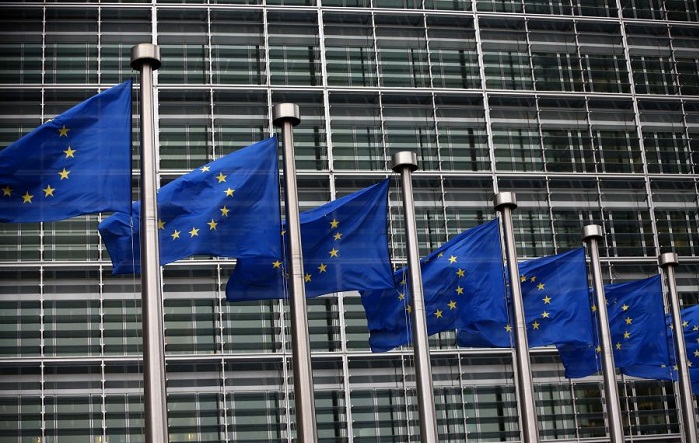Brexit Deal: UK lawmakers delay Brexit vote and pressurized Boris Johnson to for extension in deadline
Relations October 19, 2020 0 COMMENTS
- The amendment, introduced by former Conservative lawmaker Oliver Letwin, withholds approval of Prime Minister Boris Johnson’s withdrawal agreement with the European Union until legislation is in place, and was passed 322 to 306.
- Supporters of the Letwin amendment suggest that it prevents the Government forcing through a no-deal Brexit at the end of October, while its opponents argue that it is a stalling tactic by anti-Brexit lawmakers.

WATCH NOWVIDEO02:30Boris Johnson speaks after UK lawmakers delay Brexit vote
U.K. lawmakers have delayed a crucial Brexit vote and forced Prime Minister Boris Johnson to ask the EU for an extension to the current October 31 deadline.
The House of Commons sat for a historic Saturday session and lawmakers were due to have a “meaningful vote” on Johnson’s new deal with Brussels. However, it was effectively hijacked by a cross-party group of MPs (Members of Parliament) who tabled an amendment that was then passed by 322 votes to 306.
The amendment, introduced by former Conservative lawmaker Oliver Letwin, withholds approval of Johnson’s withdrawal agreement with the European Union until legislation is in place, and caused the government to pull its “meaningful vote.”
It automatically triggers a law known as the “Benn Act” which forces the prime minister to request a further extension to January 31.
Speaking in front of lawmakers after the setback, Johnson said the government would not table the crucial Brexit vote on Saturday. “The opportunity to have a meaningful vote has effectively been passed up,” Johnson said.
“I will not negotiate a delay with the EU and neither does the law compel me to do so,” Johnson added. However by law, according to the Benn Act, Johnson has until 11:00 p.m. London time on Saturday to send a letter the EU requesting an extension. It is yet to be seen how the prime minister will attempt to circumvent this.WATCH NOWVIDEO04:35Deal or no deal, Brexit will still lead to lower UK growth: Economist
Supporters of the Letwin amendment suggest that it prevents the government forcing through a no-deal Brexit at the end of October, while its opponents argue that it is a stalling tactic by anti-Brexit lawmakers.
“Next week, the government will introduce the legislation needed for us to leave the EU with our new deal on Oct. 31 and I hope that our European colleagues and friends will not be attracted, as the opposite benches are, or should I say the front bench opposite, by delay,” Johnson added.
The Withdrawal Agreement Bill will be now be introduced in the House of Commons early next week which would potentially mean a vote on Tuesday evening on what is termed the “second reading,” the initial stage of a passage of a bill through the House of Commons.
Should it pass, this would be the first time the House has passed any bill relating to Brexit withdrawal deals. Should it then ascend to the House of Lords, parliament’s upper chamber, and pass before the deadline, there is still a possibility that the U.K. leaves the EU on Oct. 31.
what is the future?
Should the legislation fail to pass on Tuesday, Brexit will probably be delayed until January 31 and a general election may be held in the meantime as Johnson’s ruling Conservative Party, who currently lead the polls, would seek a mandate to push for either Johnson’s deal or a no deal at a later stage.
“At the moment, then, the economy and the pound can take a bit more comfort from the chances of a no deal on 31st October having diminished further (although it’s probably not wise to completely rule anything out),” Paul Dales, chief U.K. economist at Capital Economics, said in a note following Saturday’s vote.
Dales said that should the limbo period only last a few days, the impact on the British economy would be limited, but projected that further delays to Brexit could see GDP (gross domestic product) growth slow from 1.3% this year to just 1.0% in 2020.
“That may well prompt the Bank of England to step in and support the economy by cutting interest rates from 0.75% to 0.50%,” Dales hypothesized.
“In that scenario, the pound would probably eventually give up the gains of the last week and fall from $1.30 now to around $1.25, if not below if the chances of a no deal on January 31 start rising.”
Nigel Green, CEO of international financial advisory firm deVere Group, said the prospect of no deal was becoming increasingly likely.

“As such, the government is said to be upping its no-deal preparations and is set to introduce legislation needed for the U.K. to leave the EU on 31 October,” he said in a statement Saturday.
“The event of not-so-Super Saturday will negatively hit U.K. financial assets, major investment decisions will continue to be put on hold by companies and organizations, as will big-ticket spending items by households, and confidence and opportunity will continue to be undermined,” Green said.
He added that both domestic and international investors holding U.K. assets may respond to the prolonged uncertainty by pulling their wealth and assets away from the U.K., but suggested that most of the Brexit “chaos” was already priced into the pound, rendering it somewhat insulated from Saturday’s developments in Parliament.
RELATED ARTICLES
Recent Posts
- Big arrangements are made by a nervous Harris campaign to secure a close victory.
- Assault on peace: Hammas deadliest attack on israle on Oct 07 , instigated Midle East Crisis:
- Israel marked “solemn” anniversary commemorating 7/10 deadly attacks:
- Trump impeachment: Trump lashed out over his impending impeachment in an irate letter to Nancy Pelosi, accusing her of declaring “open war on American democracy”.
- hotness breaks its records in Australia :
